Best laptops for engineering students in 2025: Our top picks tested and rated
These are the best laptops for engineering students we recommend
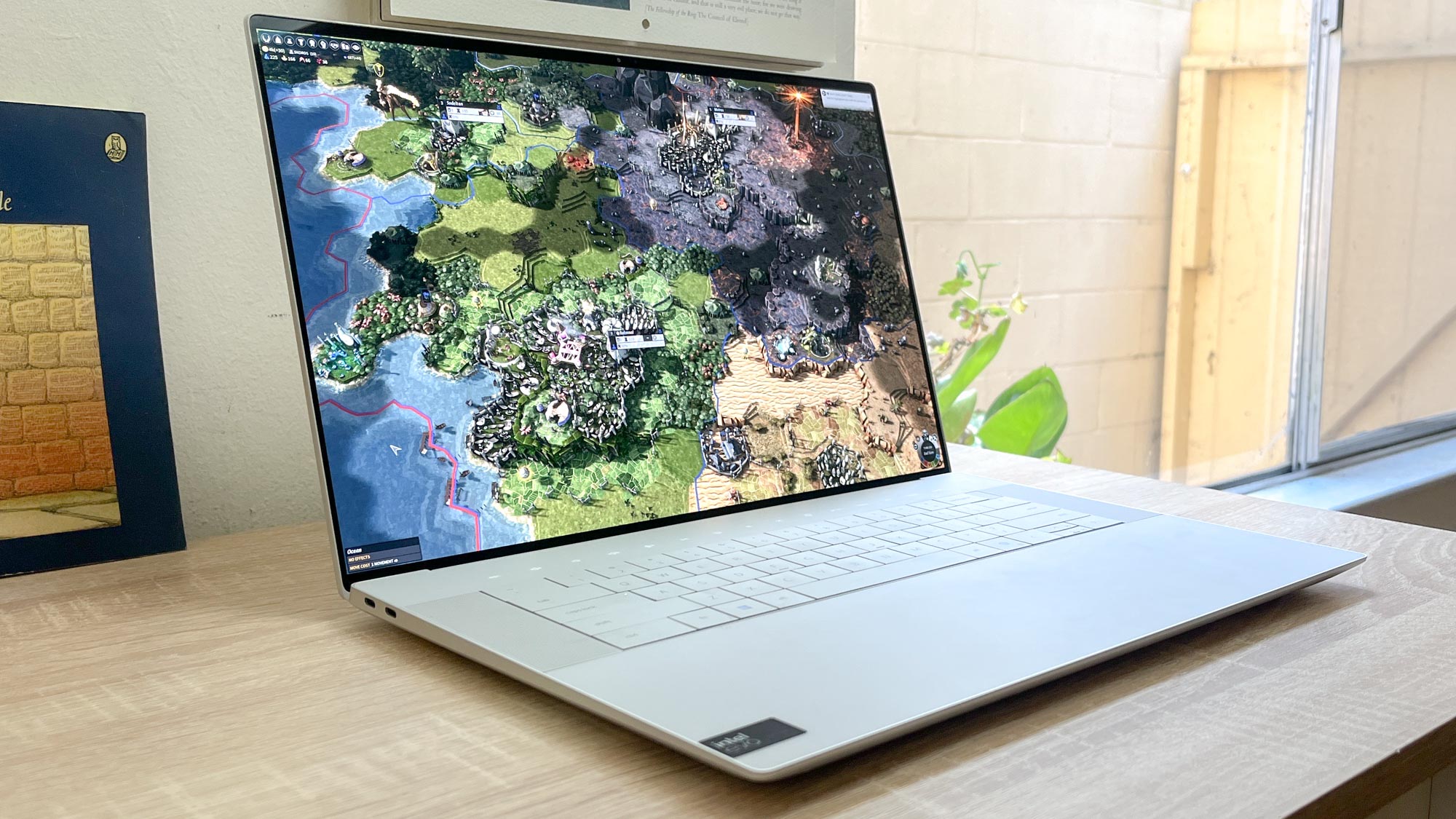
Need a laptop for engineering school? You have my sympathies, because finding the best laptop for engineering students can be hard—especially if your school or engineering department has painfully specific or vague requirements for what laptop to bring.
I know because my team and I test dozens of laptops from the top manufacturers every year to find the best laptops for college students, and I keep an eye out for powerful machines that would be ideal for engineering students.
We also try to keep tabs on common engineering program requirements, and I pay attention to readers and parents who write in with questions about which laptops will best meet their course requirements. And I typically recommend the Dell XPS 16 as the best laptop for most engineering students because it's widely available, customizable with powerful components and delivers great performance and battery life.
If you need something cheaper, the MSI Bravo 15 is an affordable gaming laptop that will give you decent power for not much money. In fact, if you can stomach their garish designs and poor battery life I think gaming laptops are great for engineering students because they're built with powerful discrete graphics cards, speedy CPUs and lots of memory and storage.
All that power helps a big-screen gaming laptop like the Alienware m18 run demanding games well, but it also helps crunch unoptimized code and power through CAD work with aplomb.
These are just a few of the recommendations you'll find on this curated list of the best laptops for engineering students, of course—we also have advice for folks seeking more portable, more repairable and more affordable laptops to carry to class this year.
Recent updates
Nvidia unveiled its next generation of PC graphics cards at CES 2025, and now that the first RTX 50-series gaming laptops have arrived I expect we'll see them start making their way to this list. We're just starting to review our first RTX 50-series laptops now, so if you're shopping for a powerful laptop and had your eyes on a 40-series laptop, maybe hold off—you can buy RTX 50-series gaming laptops already, and we're going to publish reviews of them soon!
The quick list
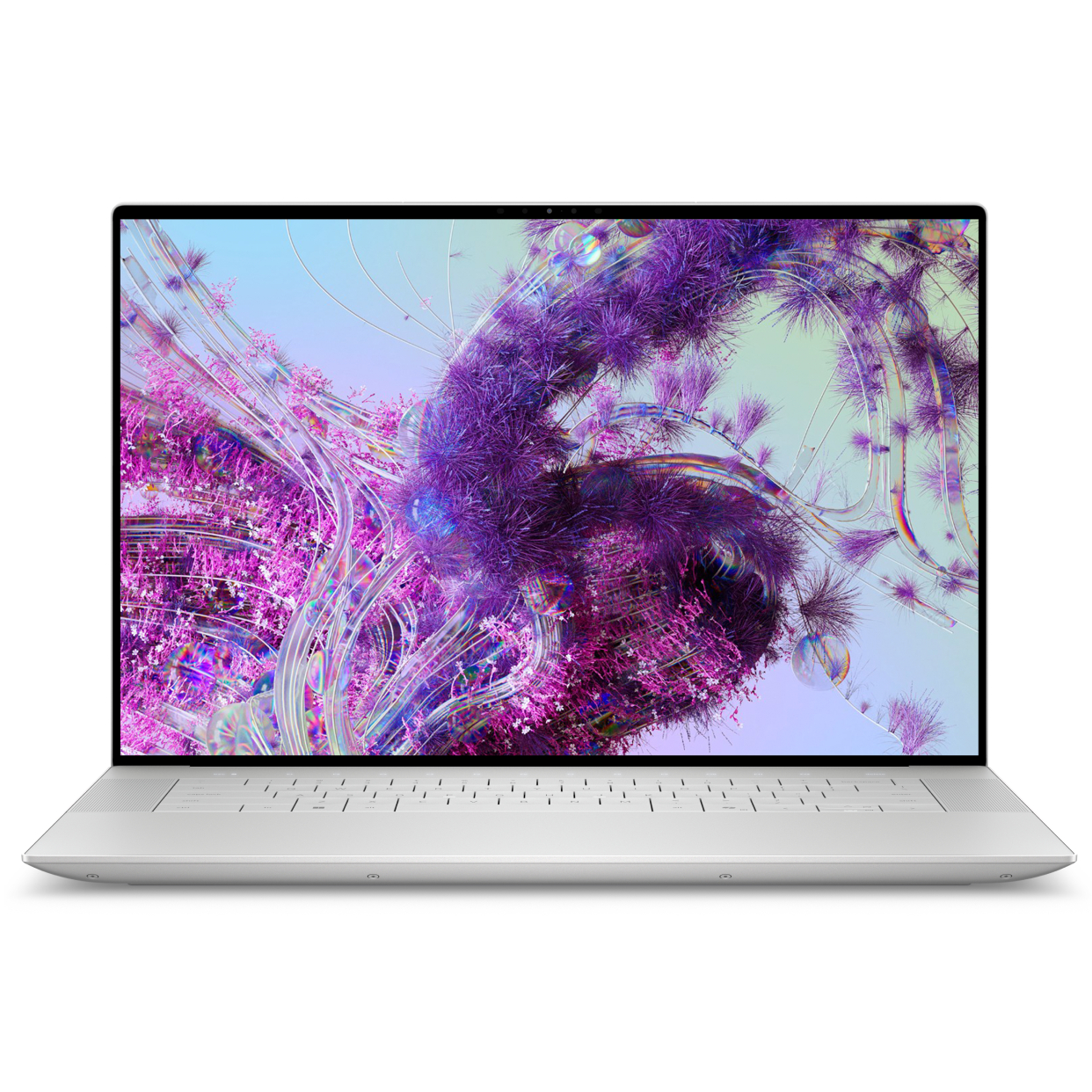
The Dell XPS 16 is our current top recommendation for engineering students because it's svelte and portable yet powerful enough to do some heavy lifting thanks to its discrete GPU. While the tight keyboard and invisible touchpad take some getting used to, this is a great all-around laptop.
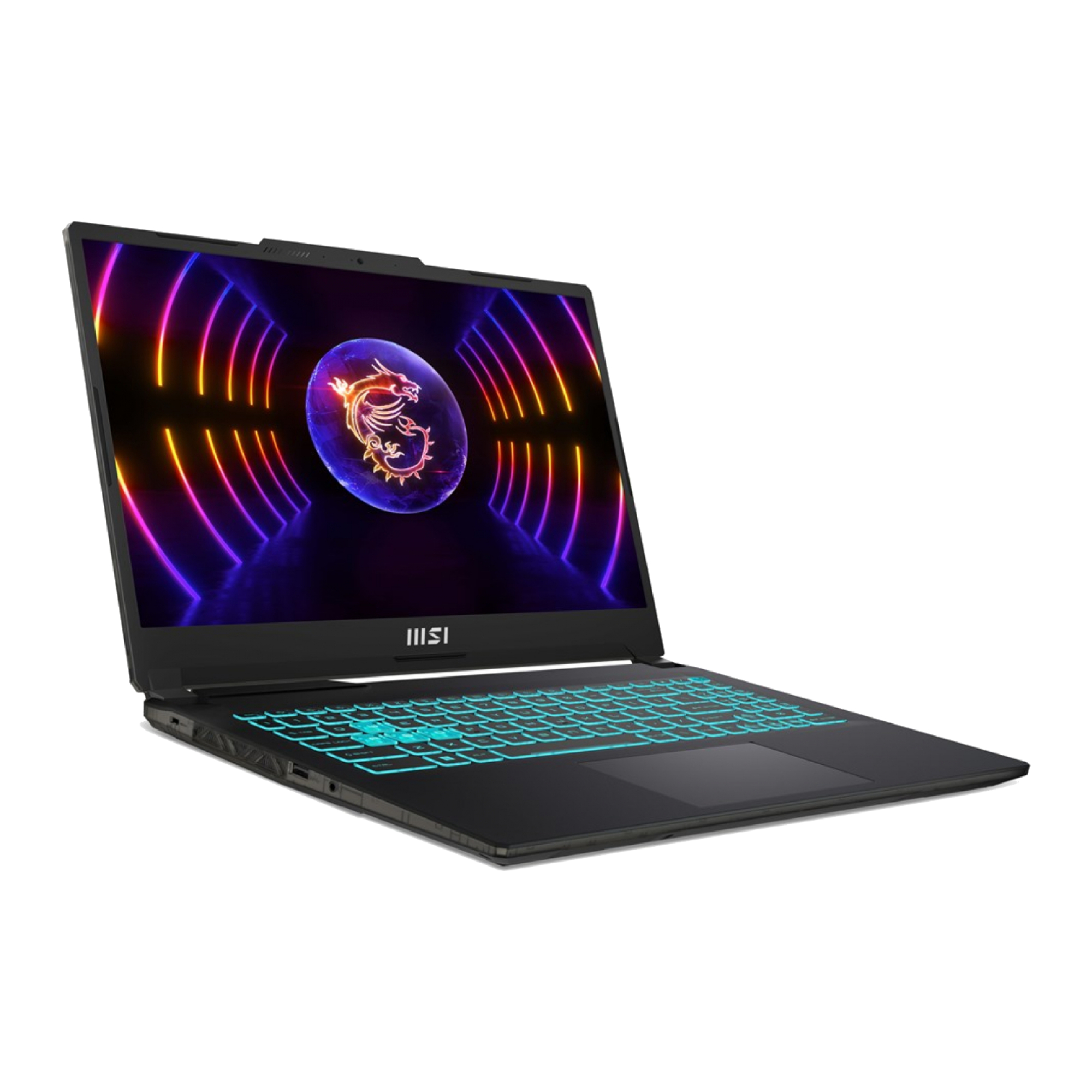
The cyberpunk aesthetic makes it clear this is a gaming laptop, but don't let that dissuade you from considering this budget machine, which gives you a cutting-edge Nvidia RTX 4050 GPU, a 13th Gen Intel CPU and a solid 144Hz 15.6-inch display.
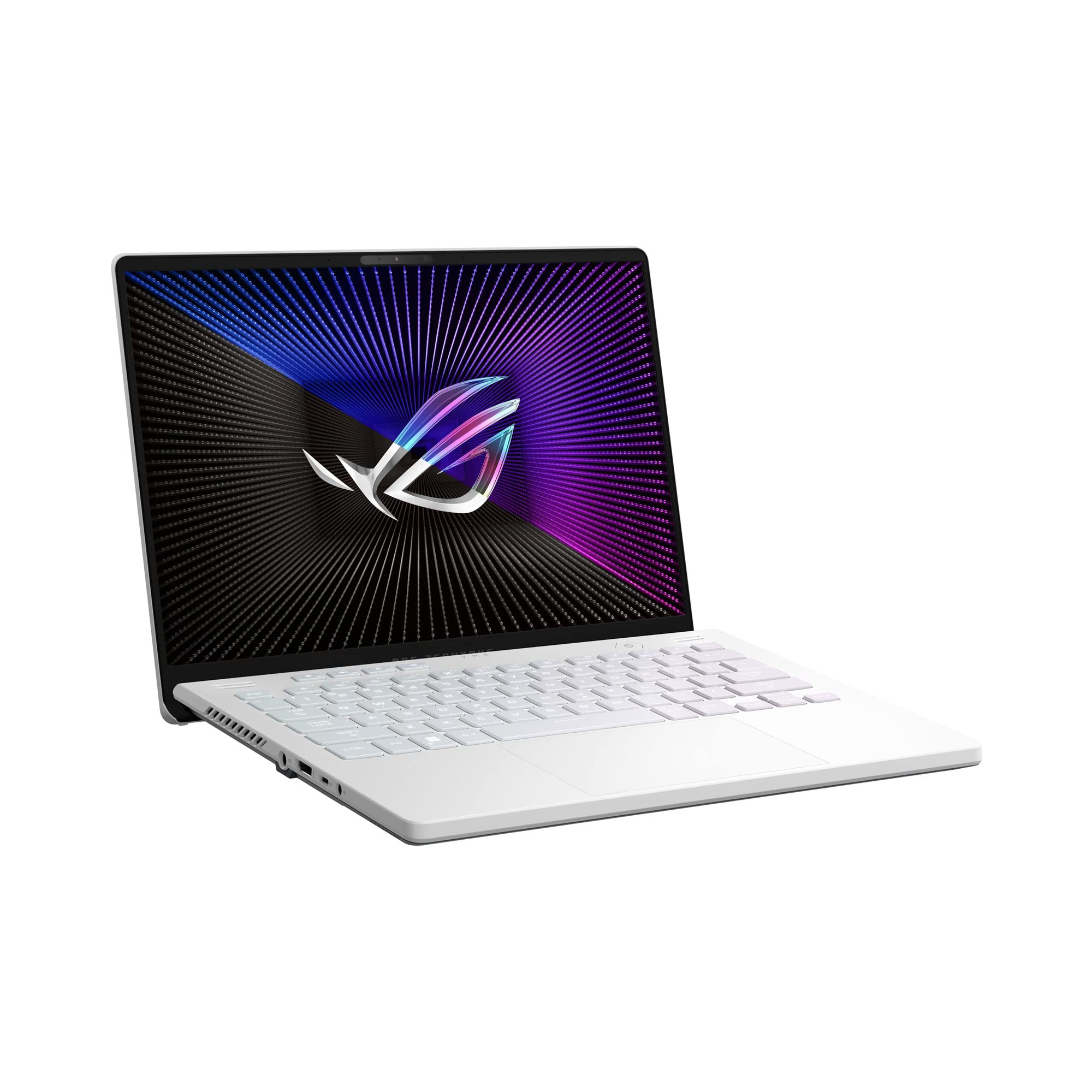
The Asus ROG Zephyrus G14 is a great gaming laptop with a discrete GPU and battery life to rival the XPS 15 or Galaxy Book 3 Ultra. The fact that it lasts over 10 hours on battery yet weighs under 4 pounds makes it the most portable on this list.
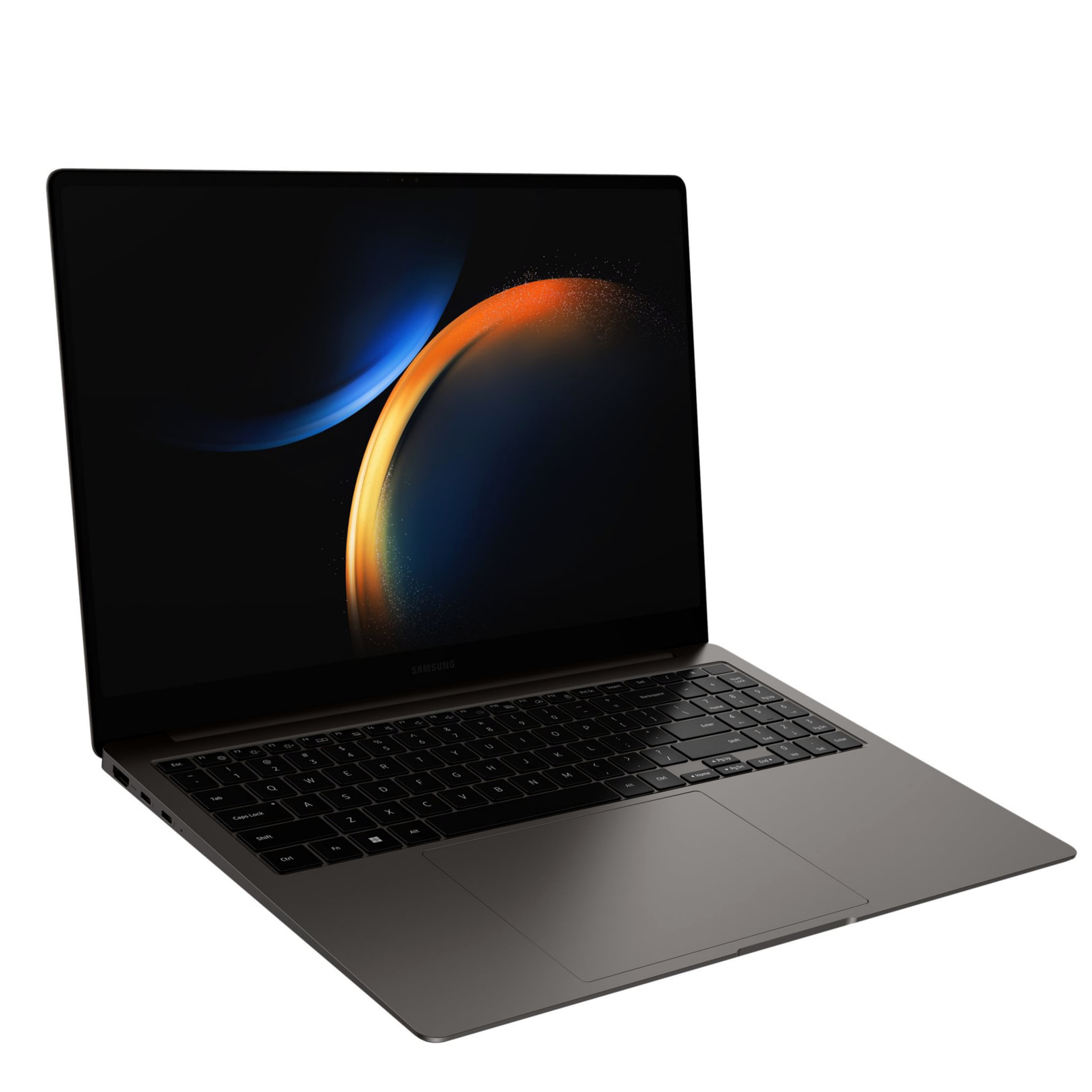
The powerful Nvidia GeForce RTX 40-series GPU in Samsung's Galaxy Book 4 Ultra make it not just great for gaming, but heavy-duty computational work too. If you like the vivid colors and sharp contrasts of OLED, the 16-inch OLED screen makes this a great choice.
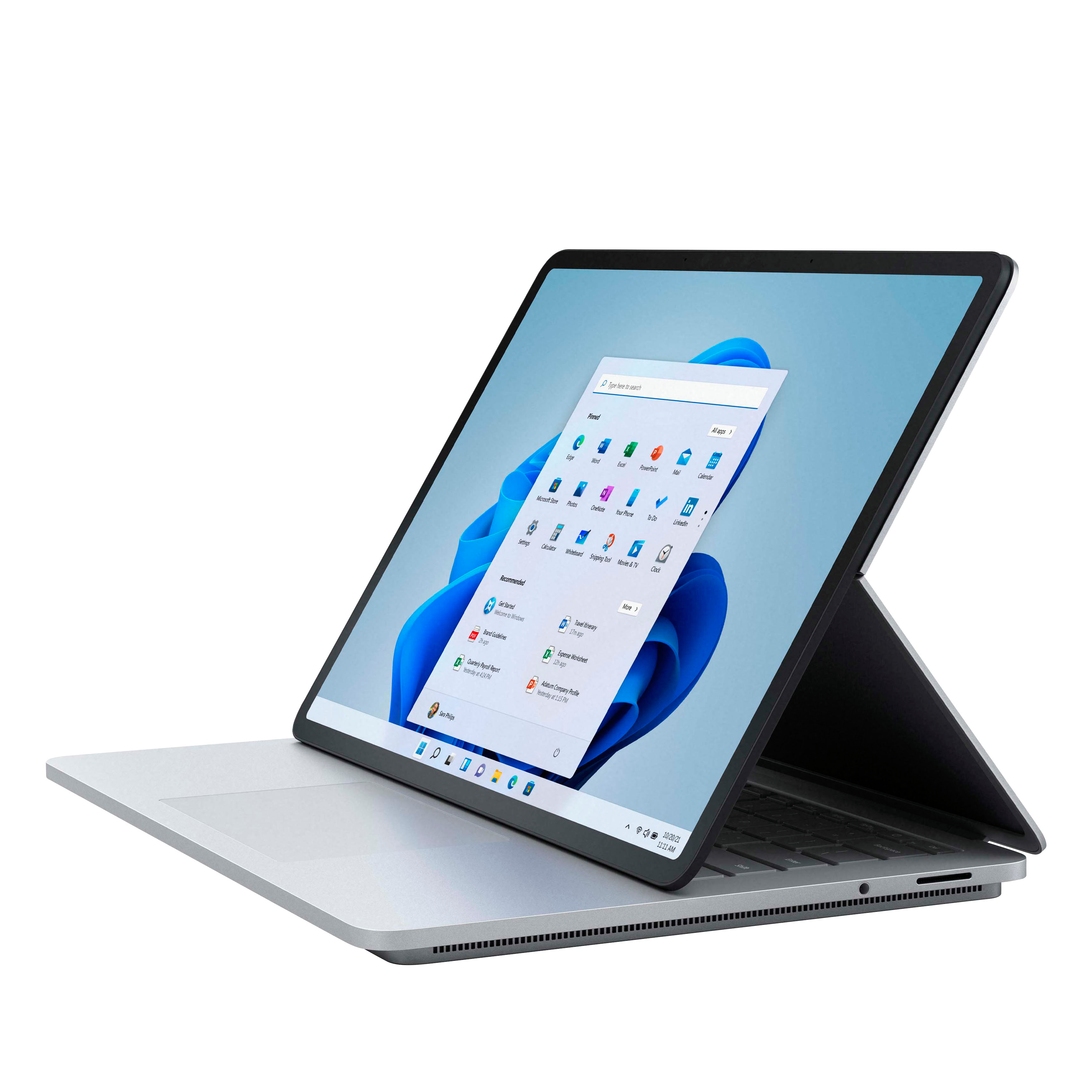
The Microsoft Surface Laptop Studio's discrete Nvidia GPU onboard makes it one of the most powerful 2-in-1s you can buy, and the unique sliding 120Hz touchscreen is great for taking notes if you splurge for the Surface Slim Pen 2 stylus.
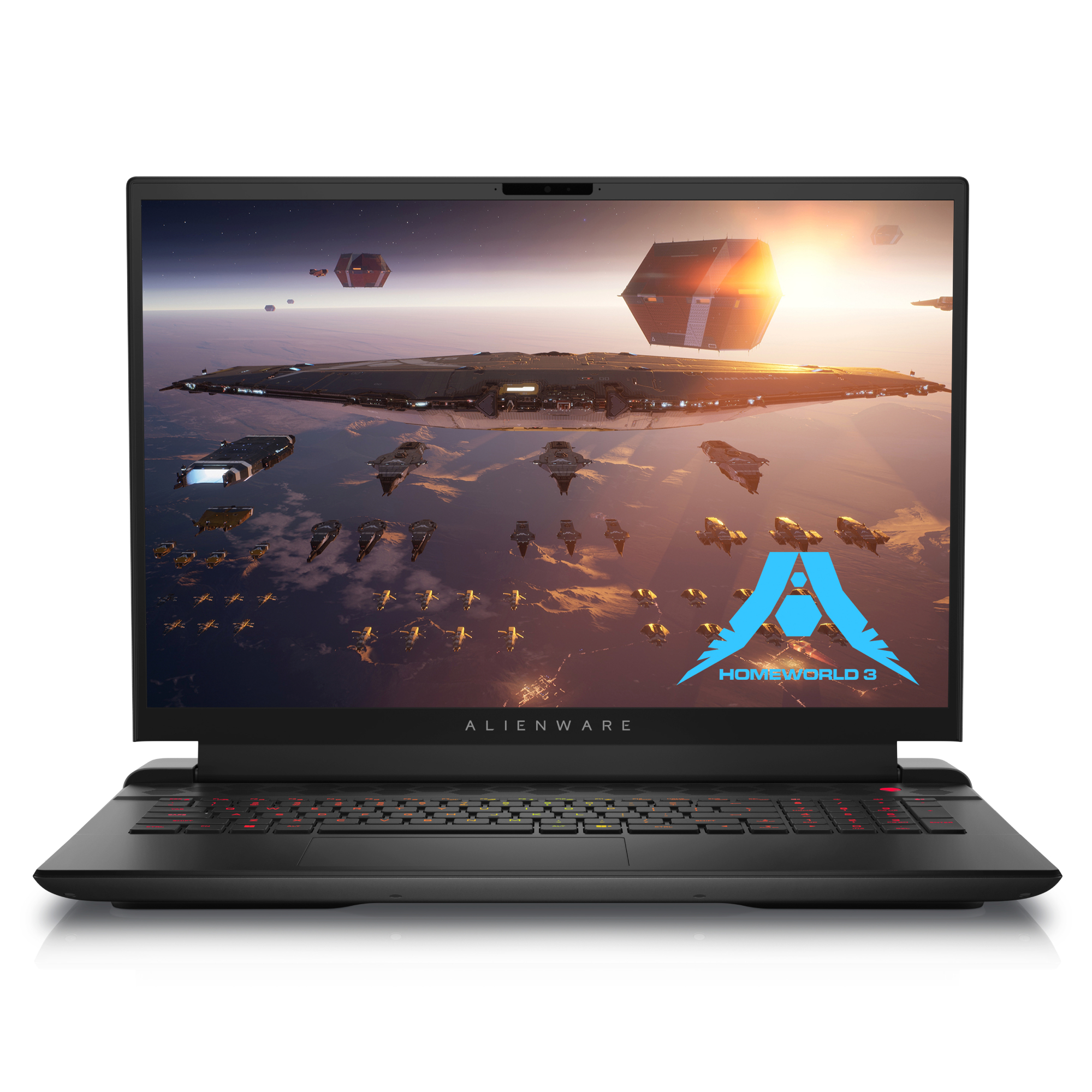
The Alienware m18 is the biggest, most powerful gaming laptop we've tested to date. Despite its great keyboard and solid speakers/screen it's too heavy, hot and loud to be of much use on the go, so this is really best as a semi-portable PC you mostly keep on your desk.
Load the next products...
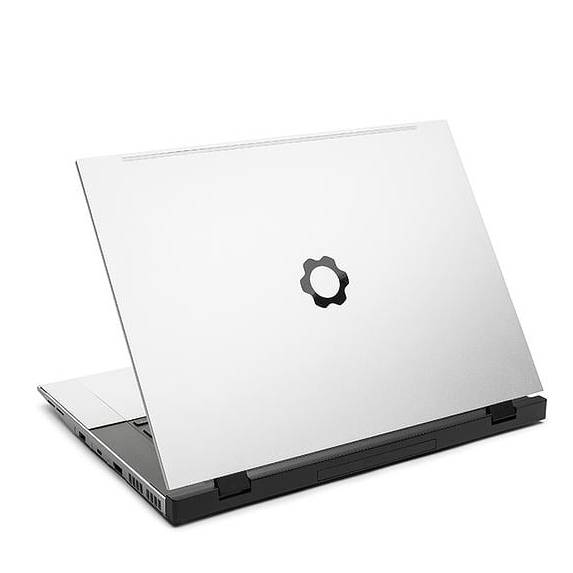
The Framework Laptop 16 gives you unprecedented control of your laptop, allowing you to swap out ports, the keyboard, the screen, and even the discrete GPU. It runs hot and loud and can feel a little unstable at times, but in return you get the most repairable and upgradable performance laptop on the planet.
The best laptops for engineering students you can buy today
Why you can trust Tom's Guide
The best laptop overall
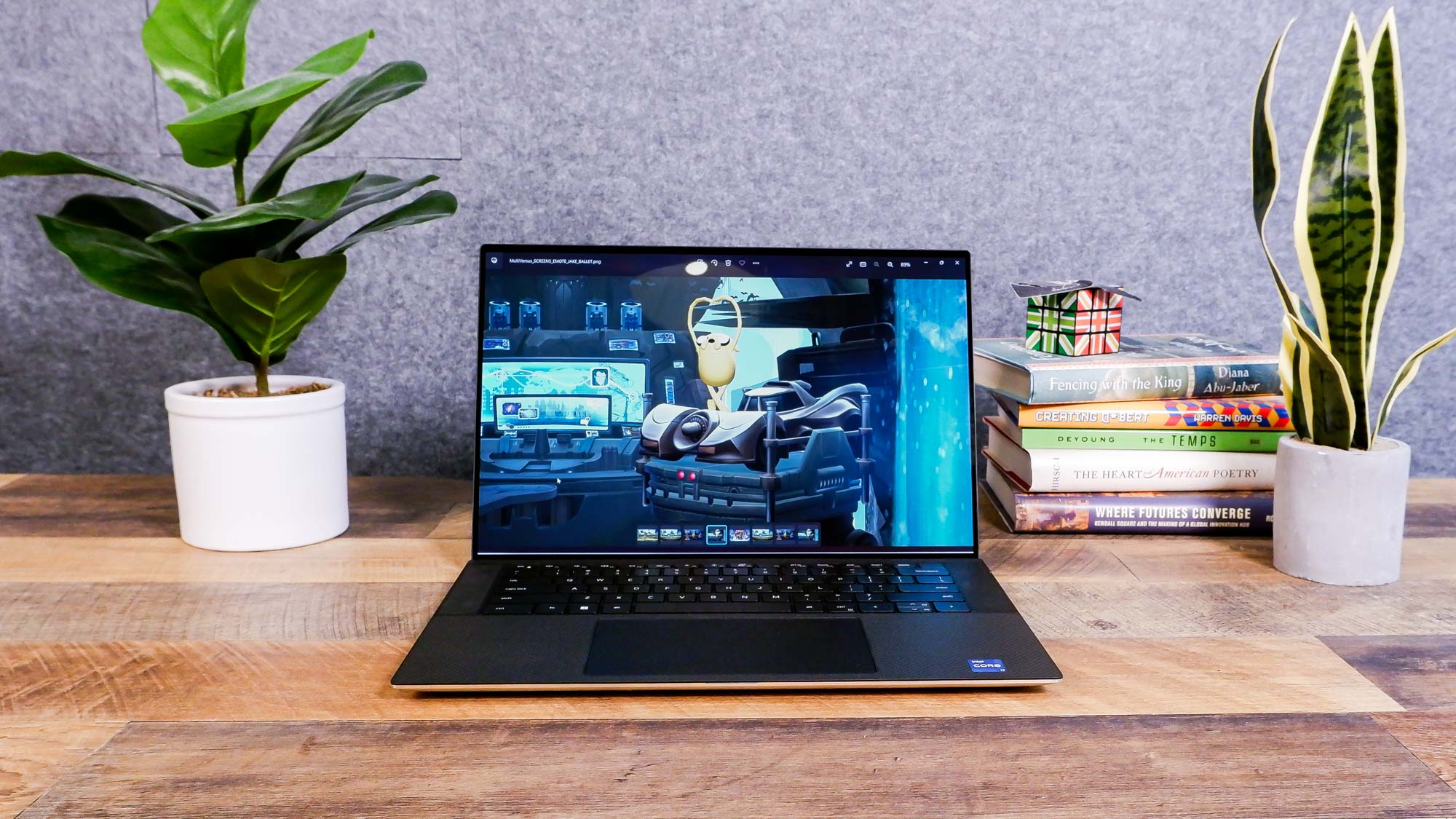
Specifications
Reasons to buy
Reasons to avoid
The Dell XPS 16 is what I recommend most to engineering students because it strikes a smart balance between being versatile, powerful and easy to carry to school. Plus, it lasted over 11 hours in our battery test, so you can count on it lasting you through a day of classes.
This Windows 11 laptop comes with a nice, bright 16-inch LCD screen, but if you can afford it I recommend springing for the 4K OLED touchscreen upgrade because it makes everything you do on the laptop look nicer. Plus, having the touchscreen gives you a nice alternative way to interact with the laptop when your hands are tired from jamming out assignments.
If you plan to do a lot of demanding coursework I also recommend upgrading the integrated Intel Arc GPU to a discrete Nvidia GeForce RTX laptop GPU. Our review unit came with the Nvidia GeForce RTX 4070, but you can choose from a few options when configuring your own Dell XPS 16 depending on your needs.
I will say I don't love the experience of typing on the Dell XPS 16, because the keyboard has basically no space between the keys and there's a row of capacitive touch keys above it instead of physical function keys. I found this unpleasant to adapt to, but I will also say that after a few days of getting to grips with it i did adapt and had no trouble typing on the XPS 16.
So if that's the only thing keeping you from buying one of these premium 16-inch ultraportables, fear not! The keyboard isn't so bad once you get used to it. The other thing to be concerned about is the XPS 16's lack of ports, as this laptop only offers you three Thunderbolt 4/USB4 ports, an SDXC card reader and a headphone jack. If you want more ports, you'll have to pay for a USB hub.
Read our full Dell XPS 16 review.
The best value option
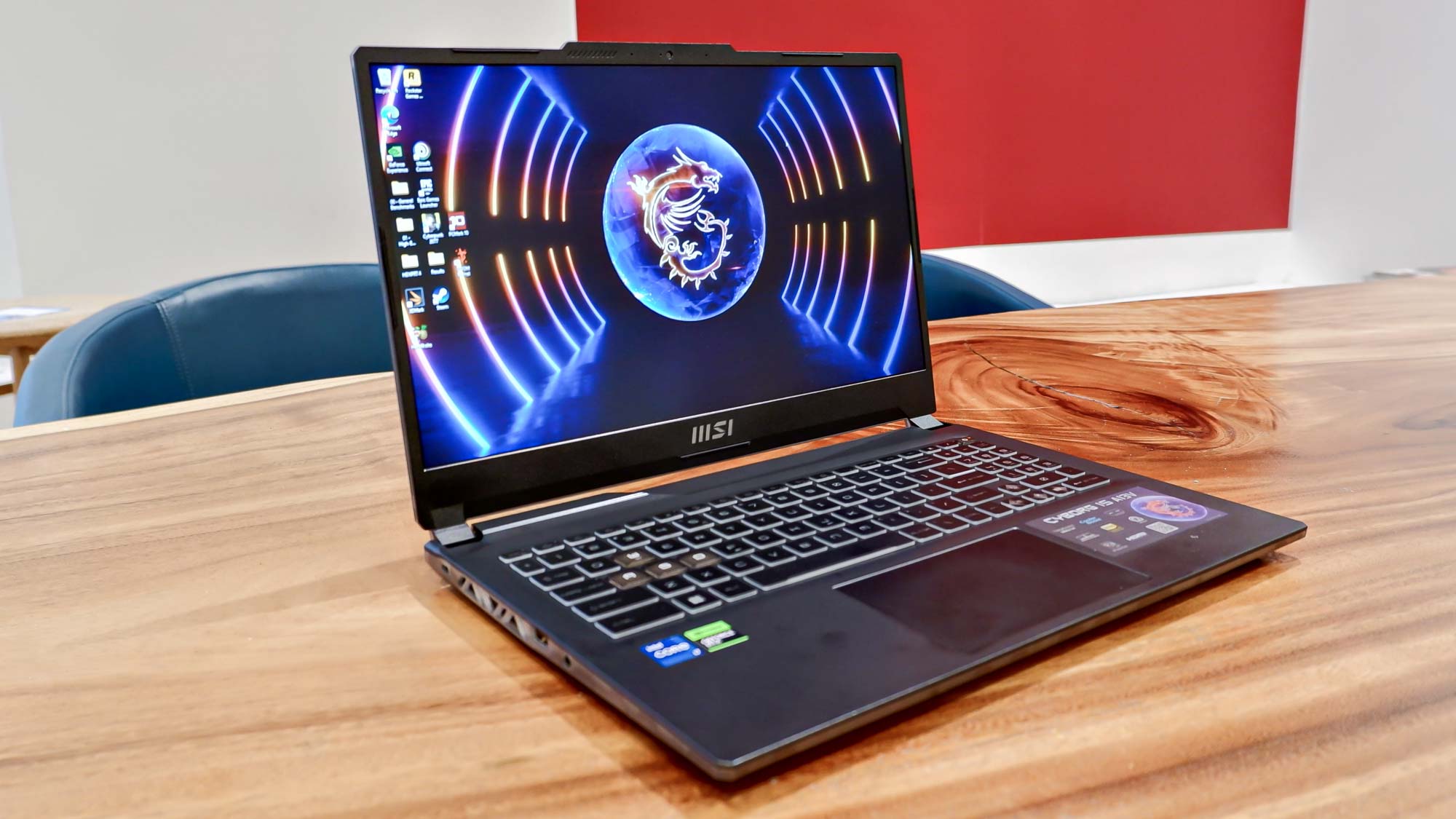
Specifications
Reasons to buy
Reasons to avoid
The MSI Cyborg 15 ($999) is a cyberpunk-inspired gaming laptop that won’t destroy your wallet. It might look a little out of place in your next lab session, but if you want a powerful laptop for not too much money this beast is hard to beat.
The model we reviewed most recently arrived sported a 13th Gen Intel Core CPU and an Nvidia RTX 4050 GPU, delivering solid gaming performance at an affordable price. But that power also makes this a great choice for students who want to use that gaming muscle for schoolwork.
And while the 15.6-inch 1080p display doesn't deliver amazing color quality or brightness, it's good enough for getting work done on and fast enough (at 144Hz) to be capable of keeping pace with high-speed games when your homework is done. Plus you get an HDMI out and an RJ-45 Ethernet jack in addition to the usual USB-A and USB-C ports, so you can easily hook this machine up to an external monitor and plug into wired Internet for maximum speed.
Of course, the 720p webcam will make you look horribly washed-out and the battery life (barely over 5 hours in our testing) is bad, but the same is true of basically all gaming laptops. What you get in return is a remarkable amount of computing power for your dollar, with some cool design to boot.
Read our full MSI Cyborg 15 review.
The most portable
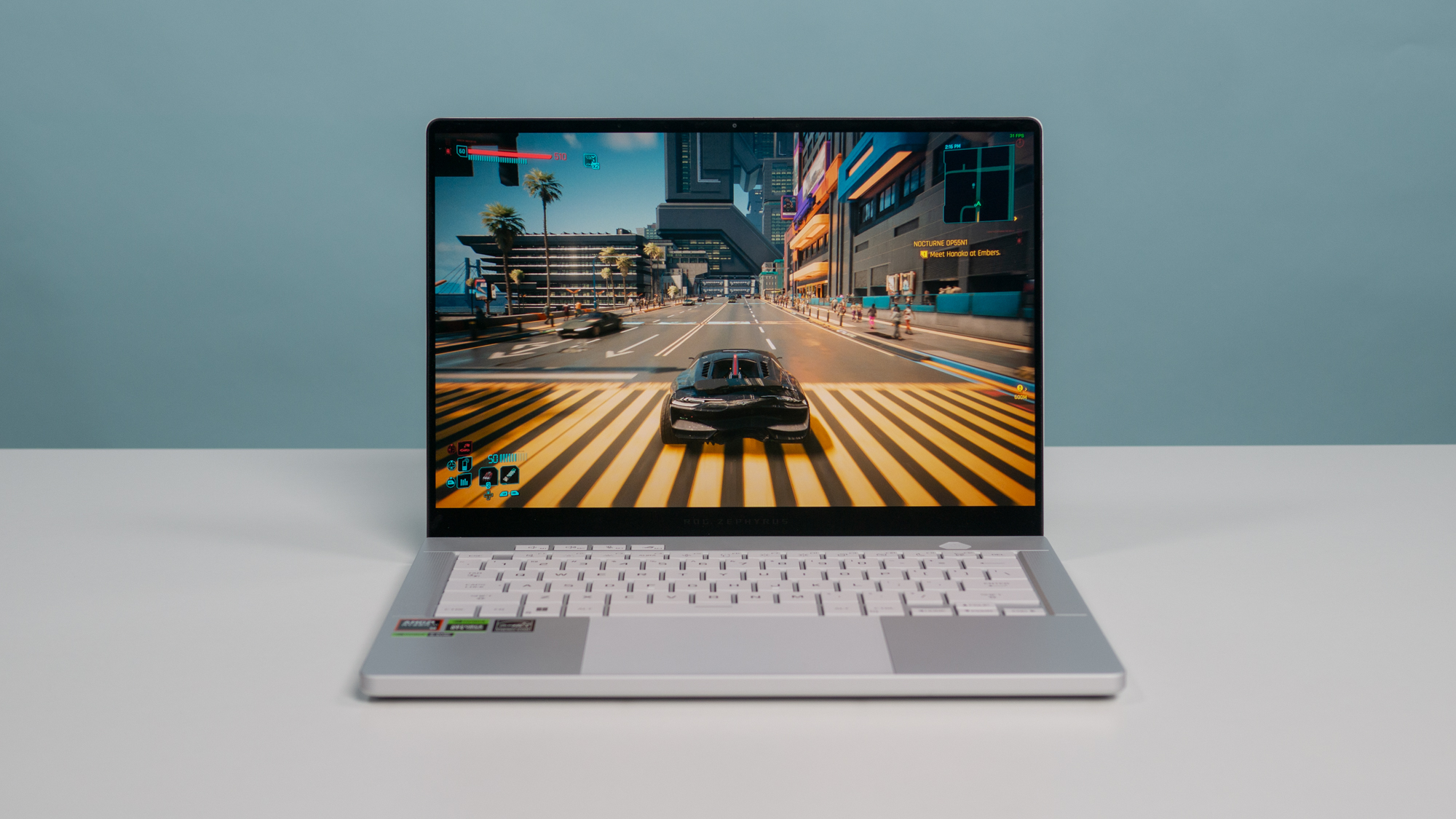

Specifications
Reasons to buy
Reasons to avoid
The Asus ROG Zephyrus G14 is a perennial favorite here at Tom's Guide that regularly ranks among the best gaming laptops you can buy, and those strengths also make it great for engineering students.
What makes the ROG Zephyrus G14 so compelling is the way it delivers great performance and decent battery life in a small, easy-to-carry chassis. The AMD Ryzen 9 8945HS CPU in our review unit is powerful enough to play many games at 60+ fps and chew through the work of transcoding a 4K video down to 1080p in under 5 minutes, so it should be good enough for many homework assignments.
The big weakness to watch out for when carrying this thing for school is battery life: The most recent Zephyrus G14 we tested lasted just under 7 hours in our in-house battery test, which means it may not get you through a full day of classes.
But as long as you don't need to use it on the go for more than a few hours at a time, the Asus ROG Zephyrus G14 is a powerful, svelte laptop for engineering students.
Read our full Asus ROG Zephryus G14 review.
The best OLED
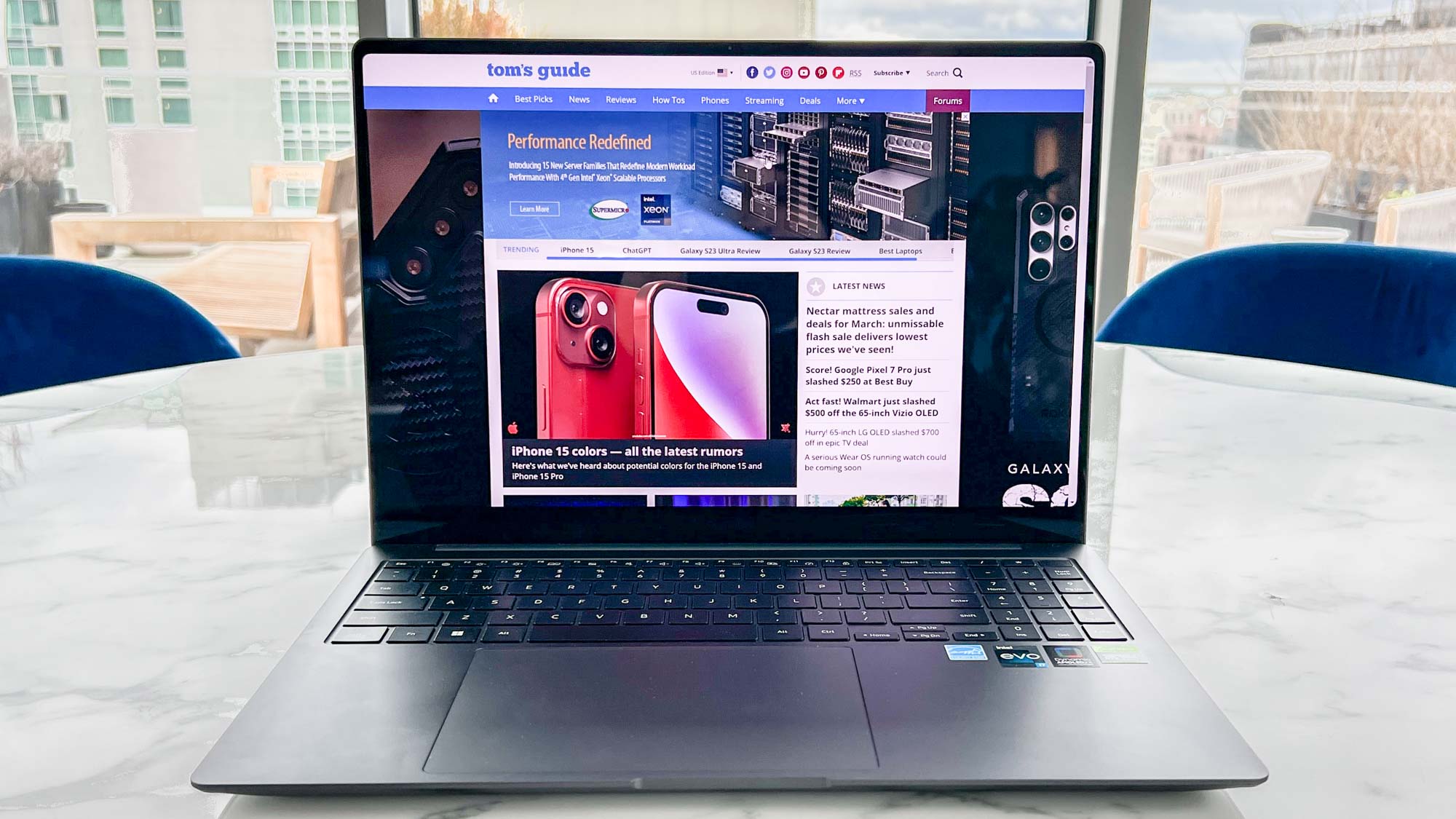

Specifications
Reasons to buy
Reasons to avoid
The Samsung Galaxy Book 4 Ultra is the powerhouse of Samsung's Galaxy Book lineup, and that makes it the best Samsung laptop for engineering students because it comes with a speedy CPU and powerful Nvidia GeForce RTX discrete laptop GPU.
That's why I recommend the Book Ultra over other Samsung Galaxy laptops if you're an engineering student: this is the most powerful laptop Samsung makes, but it still has a fairly portable thin-and-light frame and a lovely 16-inch AMOLED touchscreen that's great for watching movies or taking notes.
Together these components give this 16-inch ultraportable OLED laptop enough muscle to help you tackle coursework, and the ultraportable design makes it easy to slide into a backpack. Plus, the roomy keyboard makes knocking out papers feel nice and comfy.
Where this laptop really shines is if you already own other Samsung Galaxy devices, because it comes with Samsung Galaxy software pre-installed that will let you easily share files and data between Galaxy devices. That can be a big productivity booster when you're taking notes or recording lectures on your Galaxy phone, then transferring those to your laptop for later study or review.
However, if you're not already invested in the Samsung ecosystem you can just ignore the extra Galaxy features—they won't interfere with the speed and capabilities of this laptop. In a lot of ways it's very similar to the Surface Laptop Studio 2, but the Galaxy Book4 Ultra comes with a newer CPU while the Laptop Studio 2 offers a unique sliding touchscreen.
Read our full Samsung Galaxy Book 4 Ultra review.
The best 2-in-1
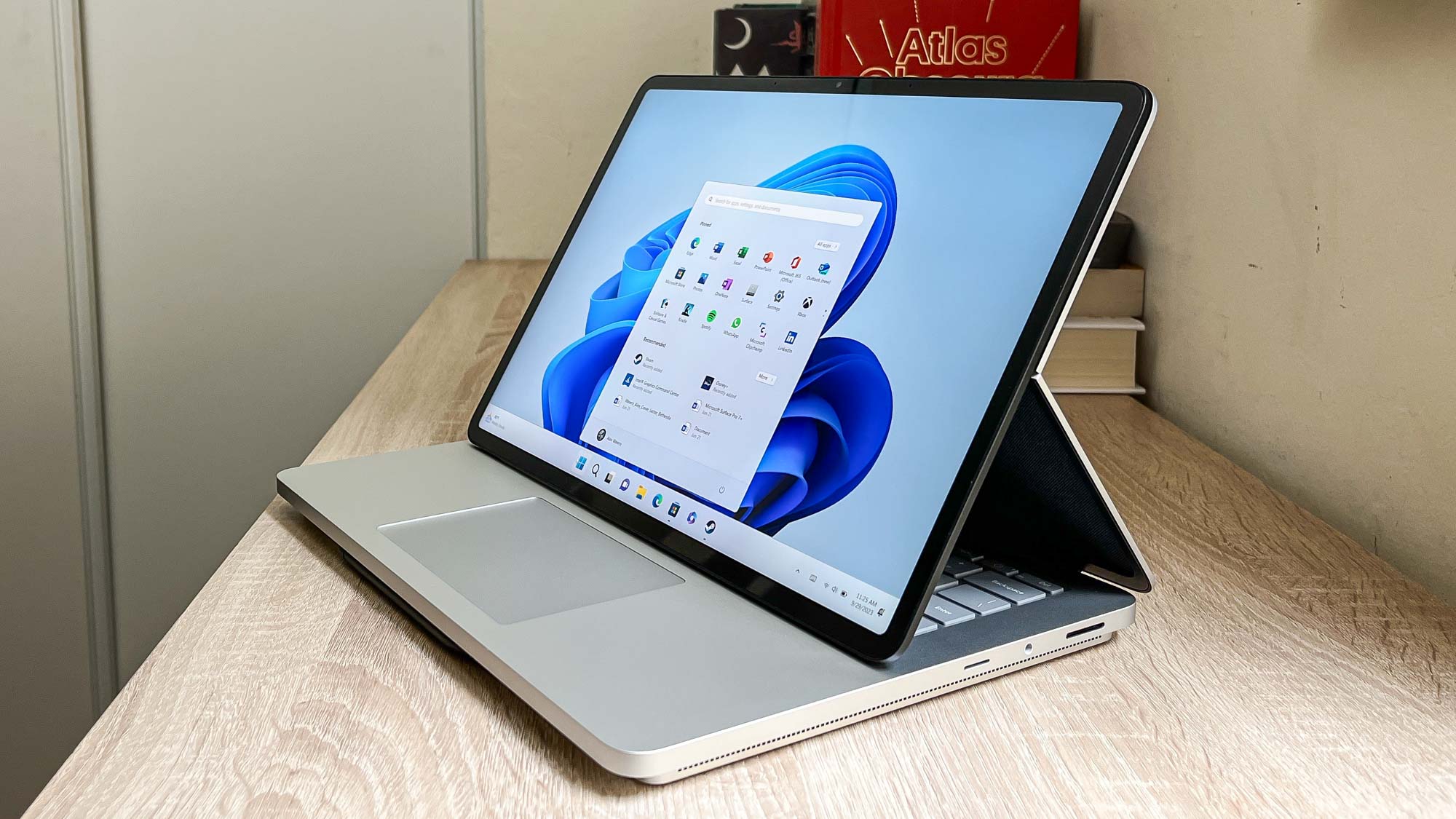

Specifications
Reasons to buy
Reasons to avoid
Microsoft's Surface Laptop Studio 2 is a powerful 2-in-1 with a MacBook Pro-like design and an eye-catching hinged display. This is Microsoft’s flagship device for Windows 11, which promises to make Windows a more inviting place for both work and play. Like Windows 11, the Surface Laptop Studio is advertised as a one-stop shop for productivity, entertainment and creative work.
And for the most part, it is all that: its 13th Gen Intel CPU and 16+ GB of RAM gives you enough power to tackle most work, and if you splurge for a model with the discrete Nvidia GeForce RTX 4050 or 4060 GPU the Surface Laptop Studio also doubles as a decent machine for gaming or video editing on the go. We've also heard it's an ideal choice for college engineering programs which require laptops that both have a discrete GPU and can be used with an active stylus. While you have to pay extra for the Microsoft Surface Slim Pen 2 stylus, its haptics make writing or drawing on the Studio's 14.4-inch 120Hz touchscreen feel great.
However, it's a bit pricey when you kit it out, and despite its great components the Surface Laptop Studio delivers subpar performance compared to the best MacBooks and Windows laptops. But few laptops can match its intriguing sliding hinged display, which can be tented over the keys like an easel or slid all the way flat to turn the Studio into a heavy tablet.
Read our full Microsoft Surface Laptop Studio 2 review.
The best big screen
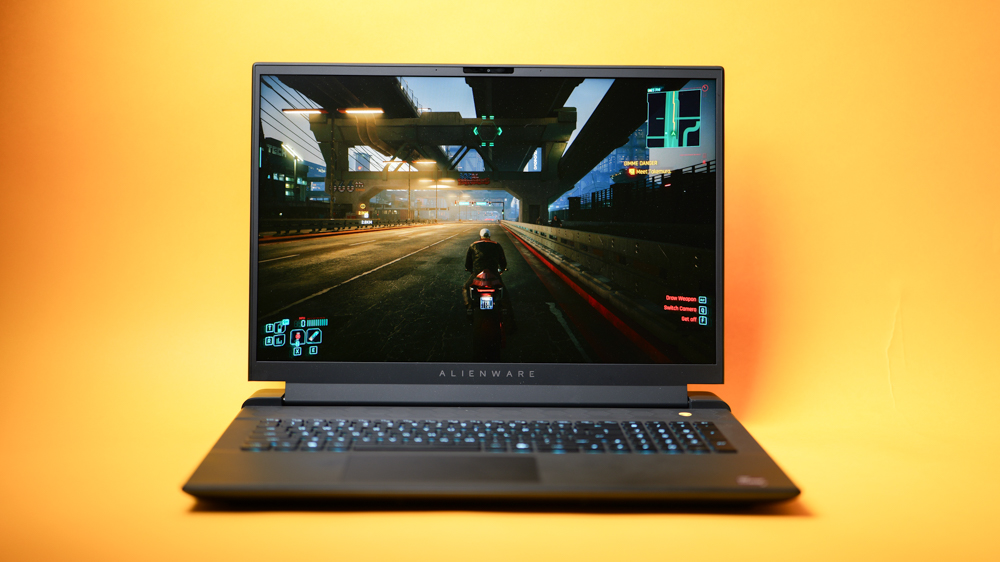

Specifications
Reasons to buy
Reasons to avoid
The Alienware m18 is one of the biggest, most powerful gaming laptops we've tested to date, and it's great for engineering students who need a big-screen laptop that's basically like a desktop PC you can fold up and throw in your car when you go home for the summer.
By that I mean, the Alienware m18 is our recommendation for the best laptop for engineering students who want a big screen to work on and don't plan to move their laptop much. The 18-inch display on the m18 is right at the edge of too big to carry, and it gives you lots of screen space to use for playing games, working on research or editing homework in CAD.
The low-profile CherryMX mechanical keys are also a delight to type on, and while the laptop is so heavy (9+ pounds) that you won't want to carry it in anything but a car very often, the fact remains that you can take it to a friend's house or home for summer break if you need to.
However, I definitely recommend a lighter, longer-lasting laptop on this list (like the Zephyrus G14) if you're looking for a laptop to carry to class, since in addition to its massive weight the Alienware m18 R2 barely lasts a few hours, tops (and less when gaming) on battery power. And the power brick is a heavy burden to cart around in a backpack all day.
Read our full Alienware m18 R2 review.
The most customizable
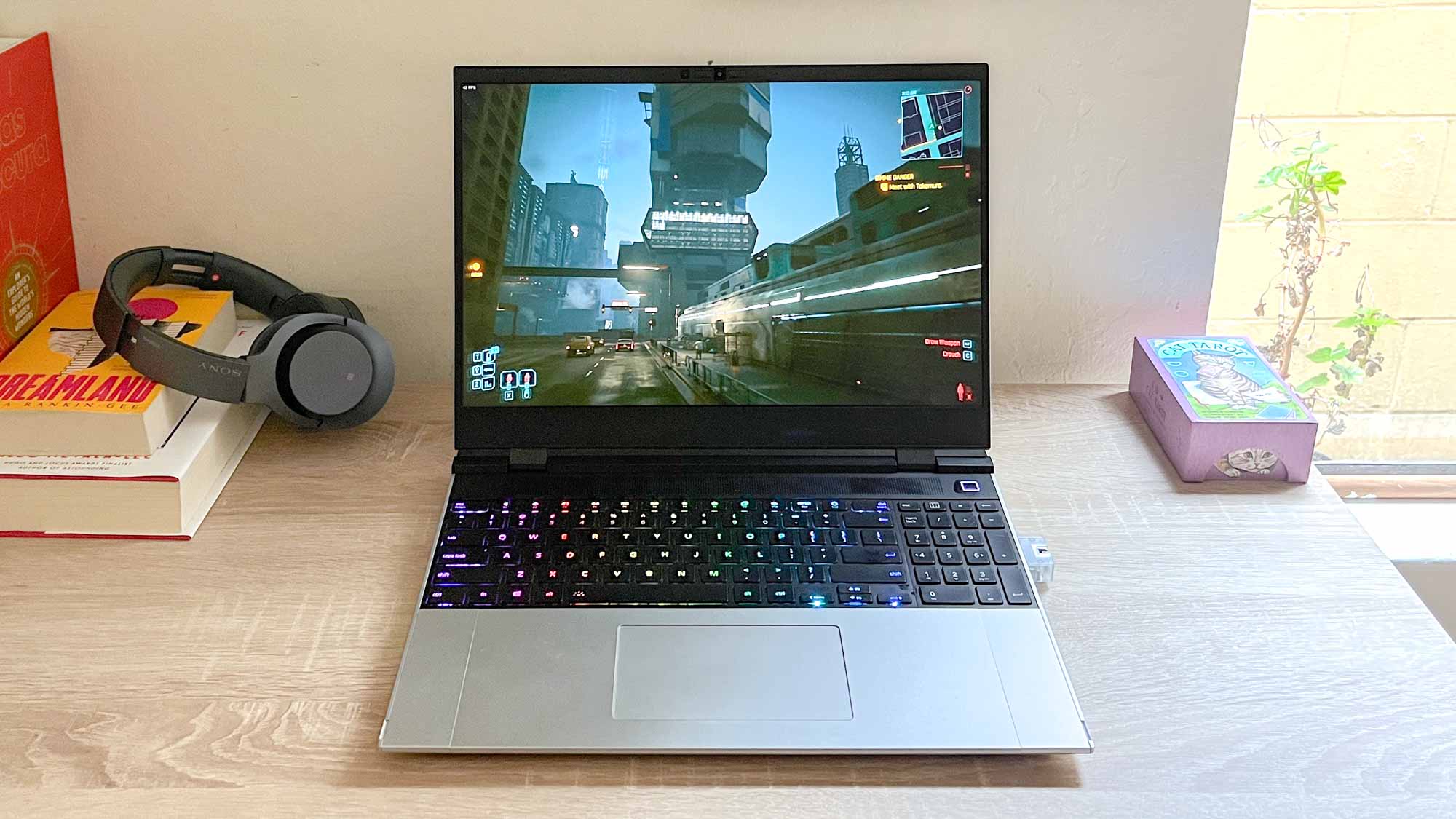
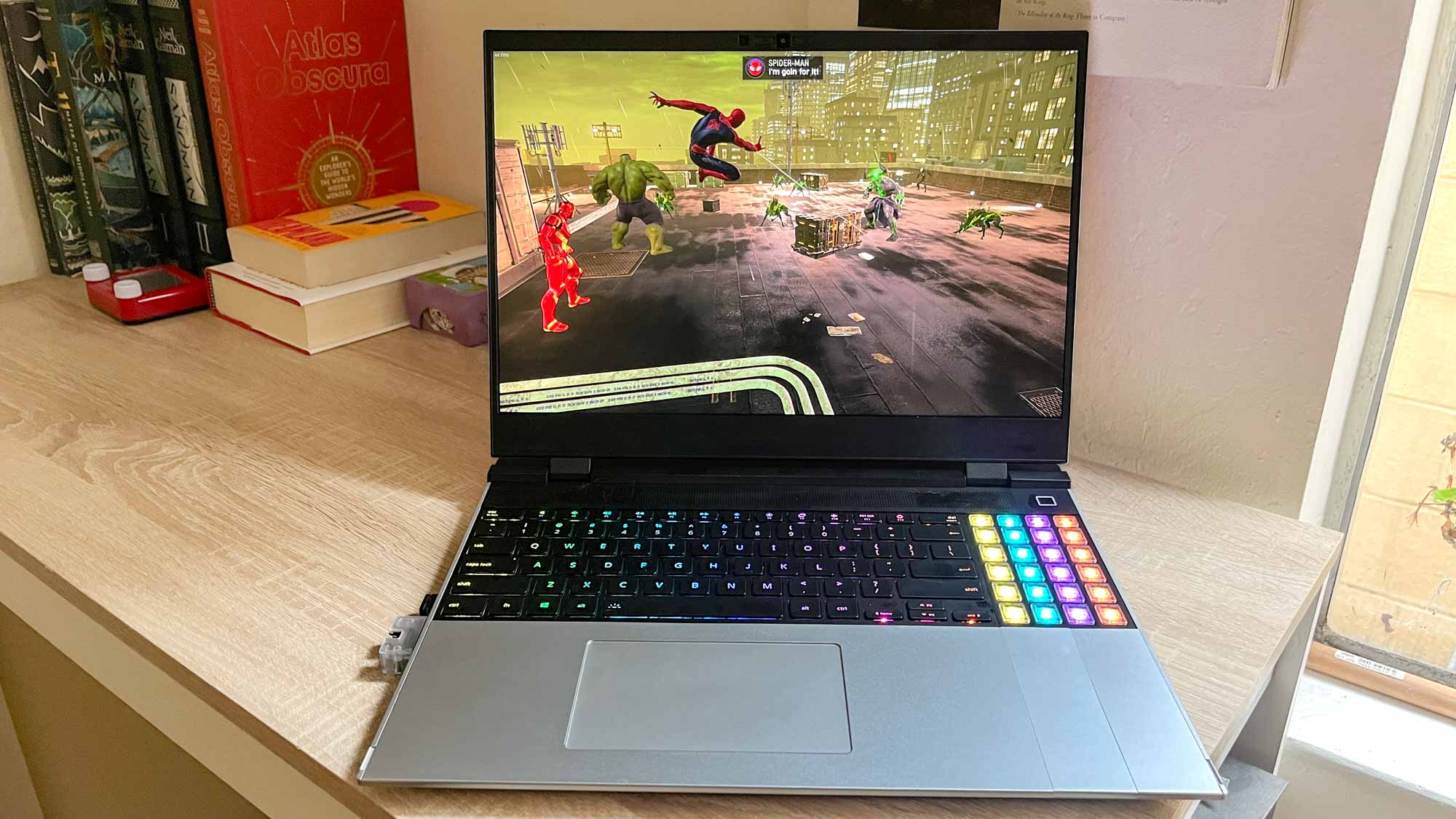
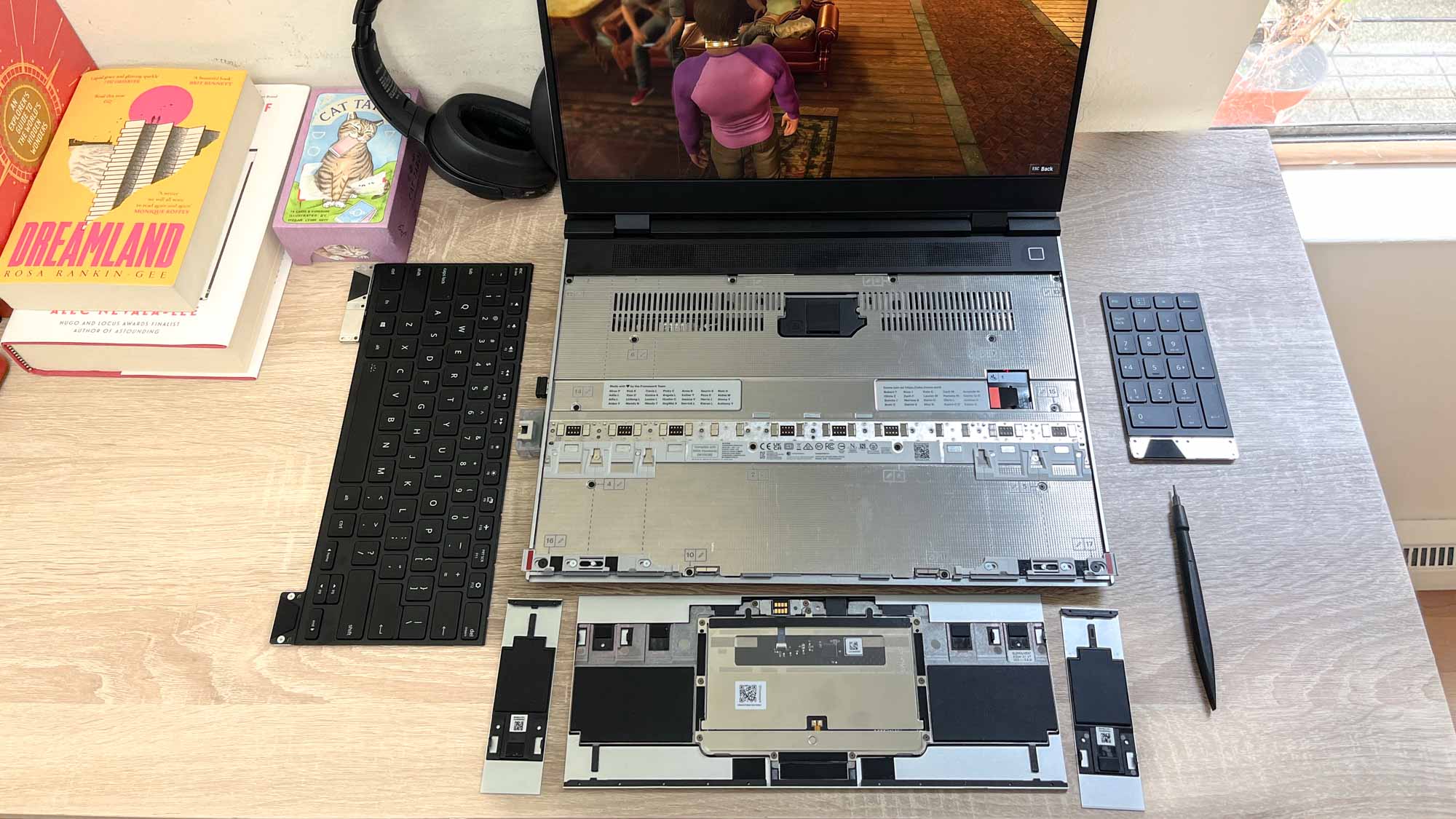
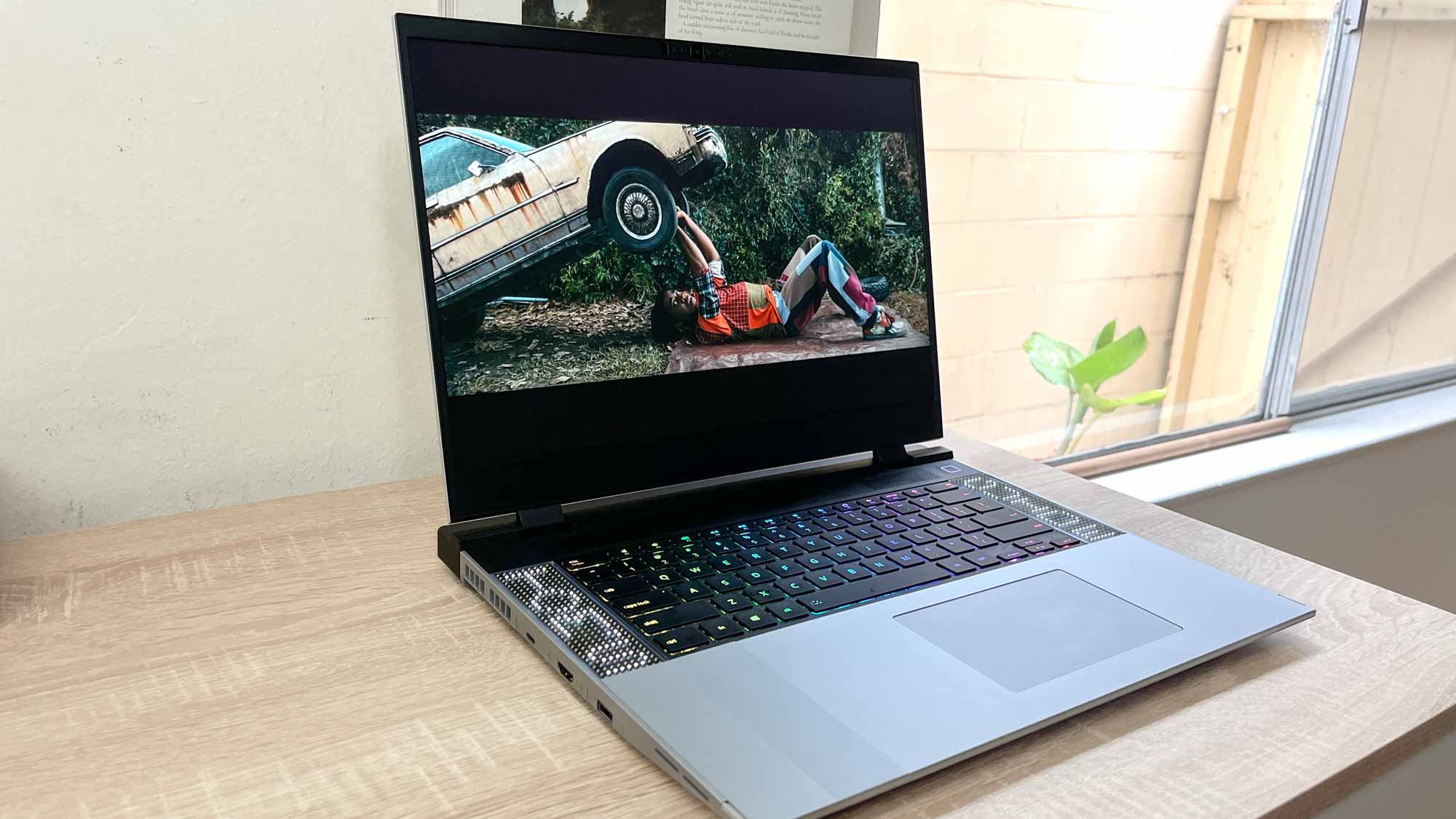
Specifications
Reasons to buy
Reasons to avoid
I love the Framework Laptop 16 because it's designed to be opened, repaired and upgraded by the owner, so you can count on being able to customize it and fix it up more than basically any other laptop on the market.
I think this model is great for engineering students specifically because it's the bigger, more powerful (and more expensive) version of the Framework Laptop 13, which is the best laptop for those who care about right to repair and upgrade because it pioneered Framework's remarkable easy-open design.
The Framework Laptop 16 builds upon what Framework pioneered, offering a 6-slot Expansion Card system that allows you to slot whatever ports you want into your laptop on the fly. While you do have to buy the Cards yourself from Framework, once you have them you can hot-swap them in and out at will so you can, say, remove the RJ-45 Ethernet jack Card when you're heading to class and swap it out for a 250GB memory Card that has your school projects stored on it.
This modular approach to design extends to the removable GPU module, an optional upgrade that lets you attach a beefy discrete GPU to the back of the laptop whenever you need the extra power. It could be useful for demanding engineering projects, plus it gives you a bit more power for high-octane gaming when homework is done.
However, you should know that this laptop's remarkable design does come with some downsides. While you can swap and move around the keyboard, trackpad and other modules, the trade-off is that the laptop feels a bit easier to bend and break than most. This is partly because it's so easy to modify and repair, which should give you some peace of mind if you do end up damaging it, but you should feel comfortable owning a laptop that might need some repair work or TLC to function well. I also noticed some significant heat and fan noise from the laptop during both day-to-day work and gaming, so be prepared for that and keep it in low-power mode when toting it to quiet study halls!
Read our full Framework Laptop 16 review.
Battery benchmarks: comparison
Battery life is a key concern for students since you don't want a laptop dying in the middle of class. With that in mind we've collected all the results from our battery tests of these laptops, and I've organized them below in a list that's easy to peruse.
As you can see, the Samsung Galaxy Book 4 Ultra is the current clear winner of terms of long battery life. However, a fair number of laptops on this list will last you around 8 hours on a full charge, which should be enough to get you through a day of classes.
Unfortunately, as you can see from our testing gaming laptops typically have terrible battery life and no gaming laptop on this list will actually last you through a full 8-hour day at school without plugging in.
| Laptop | Battery life (tested) |
| Alienware m18 R2 | 3:46 |
| Asus ROG Zephyrus G14 | 6:51 |
| Framework Laptop 16 | 8:49 |
| Microsoft Surface Laptop Studio 2 | 9:31 |
| MSI Cyborg 15 | 5:05 |
| Dell XPS 16 | 11:03 |
| Samsung Galaxy Book 4 Ultra | 13:19 |
Performance benchmarks: comparison
To help you get a better sense of which laptops perform better, I've also included a table of all the results from these laptops in our CPU benchmark tests.
For these tests we run the Geekbench single-core CPU and multi-core CPU tests and report the scores for each. By comparing these scores and seeing which is higher, you can get a general sense of which is more capable.
As you can see from the results below, the Alienware m18 is the clear performance leader on this list. However, even a cheap gaming laptop like the MSI Cyborg 15 can put up decent numbers in terms of raw performance.
| Laptop | Geekbench single-core test | Geekbench multi-core test |
| Alienware m18 R2 | 2,868 | 18,035 |
| Asus ROG Zephyrus G14 | 2,614 | 12,246 |
| Microsoft Surface Laptop Studio 2 | 1,862 | 12,760 |
| Framework Laptop 16 | 1,782 | 11,983 |
| MSI Cyborg 15 | 1,837 | 10,614 |
| Dell XPS 16 | 1,751 | 13,199 |
| Samsung Galaxy Book 4 Ultra | 2,426 | 13,061 |
How to choose the best laptop for you
How to choose the best engineering laptop for you
Performance: If you're going to be spending years studying engineering, you're going to need a computer with enough power to handle anything your teachers throw at you. We recommend at least a new mid-range CPU (Intel Core Ultra or AMD Ryzen 7) and at least 16 GB of RAM, though if you can afford to spend more on on a laptop with better specs it will pay off in the long run.
Graphics and gaming: Most gaming laptops come with discrete graphics cards so they can run the latest games well, but the same card can be equally vital to engineering students who will be using CAD (computer-assisted design) and 3D analysis programs. These kinds of applications really benefit from the power of a good GPU, so if you're expecting to do any graphics or 3D work it's a good idea to invest in a laptop with a discrete Nvidia or AMD graphics card.
Operating system: Laptops typically come in three flavors: Windows (most mainstream PCs), macOS (MacBooks) and Chrome OS (Chromebooks). Chrome OS isn't good for much besides web surfing, file management, and light computing, so a Chromebook isn't a great choice for serious schoolwork. However, a crafty student could install Linux on a high-powered Chromebook to turn it into a decent laptop for engineering work.
Many engineering students spend a lot of time working with specialized or self-developed software, so Windows is often preferable over macOS because it throws up fewer roadblocks when using such tools. However, even Windows can sometimes get in the way of serious engineering work, which is why many engineering students get MacBooks or Windows laptops and install Linux on them so they can dual-boot into whatever operating system works best for their needs.
As mentioned above, when making your buying decision be sure to consult your teachers and/or the engineering department at your school for more specific advice on what you'll need for your studies. Whichever system you decide on, it's a good idea to pair it with the best mouse for your particular work situation.
How we tested these laptops
How we test the best laptops for engineering students
To find the best laptops for engineering students we run every laptop through a rigorous suite of benchmarks and real-world tests to gauge how it will perform during everyday use.
We measure the average brightness and color quality of each laptop's display using our in-house light meter and colorimeter. For general performance, we run our machines through tests that include Geekbench 6 (CPU performance), as well as various 3DMark tests to measure graphics capabilities. We also run a file transfer test to measure how fast a machine's hard drive is, and a custom battery test that has the machine browse the internet over Wi-Fi until it runs out of juice.
Plus, we run the graphics benchmark test in Sid Meier's Civilization VI: Gathering Storm to get a sense of how well a laptop can handle basic games. When testing dedicated gaming laptops, we run benchmarks for a number of games such as Cyberpunk 2077 and Red Dead Redemption 2.
For more information on our testing process, check out our guide to how we test.

Alex Wawro is a lifelong journalist who's spent over a decade covering tech, games and entertainment. He oversees the computing department at Tom's Guide, which includes managing laptop coverage and reviewing many himself every year.
Sign up to get the BEST of Tom's Guide direct to your inbox.
Get instant access to breaking news, the hottest reviews, great deals and helpful tips.

Alex Wawro is a lifelong tech and games enthusiast with more than a decade of experience covering both for outlets like Game Developer, Black Hat, and PC World magazine. A lifelong PC builder, he currently serves as a senior editor at Tom's Guide covering all things computing, from laptops and desktops to keyboards and mice.
